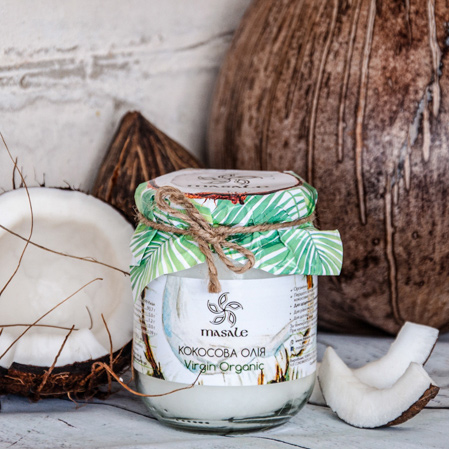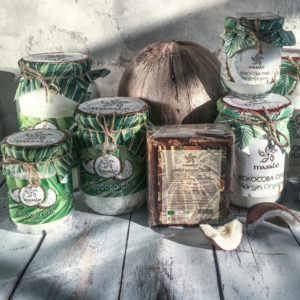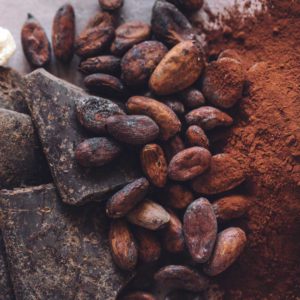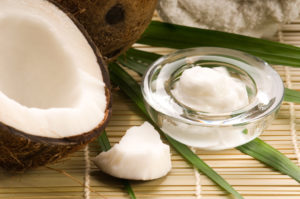We have put together a series of articles to help our friends who want to know more about coconut oils. The information will help you not make a mistake in choosing high-quality coconut oil and better understand the labeling and classification of your favorite MASALE coconut product.
Let’s start with, perhaps, our favorite positions: the common and different features of virgin coconut oil and cold-pressed coconut oil
- VIRGIN — VIRGIN CLASS COCONUT OIL
- EXTRA VIRGIN — EXTRA VIRGIN CLASS COCONUT OIL
- COLD PRESSING — COLD PRESSED COCONUT OIL
- MICRO- DIRECT EXPELLER PRESSING AND EXPELLER PRESSING — PRESSING USING THE PRESSING METHOD
COCONUT OIL: VIRGIN — VIRGIN COCONUT OIL
There is no official standard for virgin coconut oil, although there is a general understanding, backed by years of research on the subject, of what exactly virgin coconut oil is. The coconut industry has agreed that virgin coconut oil can only be made from unrefined oil. However, not all coconut oils can even tentatively be called virgin oil.

Virgin coconut oil means oil that has been extracted:
- from fresh coconut milk, the so-called “wet method” without further purification and processing
- from fresh high-quality coconuts, and its extraction / purification is carried out only by mechanical means. The result is virgin coconut oil with very low free fatty acids
In the process of such processing, coconut oil has a long shelf life, natural coconut taste and aroma, light viscosity and low-fat consistency.
SUMMARY:
- Virgin coconut oil is a specific type of natural coconut oil
- Virgin coconut oil cannot be made from copra
- Organic certification of coconut oil does not guarantee that the oil is truly natural and unrefined.
COCONUT OIL EXTRA VIRGIN — EXTRA VIRGIN CLASS COCONUT OIL
Technically, extra virgin is synonymous with first pressing. However, this term is not official as many countries do not accept this terminology.
COCONUT OIL COLD PRESSING — COLD PRESSED COCONUT OIL
This is the term most commonly used in relation to processed oil. Cold pressing means the primary extraction of the oil emulsion or oil substance from the coconut (in our case). The purpose of “cold pressing” is to avoid the use of solvents when processing the oil, and this is why the starting and final products do not contain harmful chemicals.
During extraction, the oil should not be subjected to high-temperature treatment, and for this purpose a simple press, hydraulic press or other technical devices of the required orientation are used.
The term “cold pressing” does not specify which type of press is used. However, let’s emphasize once again: coconut oil obtained by cold pressing should not be exposed to high temperatures before, during or after the pressing process.
NOTE
As we mentioned in the article earlier, there are three main stages of oil processing: material preparation, extraction and final purification. Ideally, the term “cold pressed” applies only to oil that has undergone the first and second stages of processing.
In order not to confuse the reader, it is worth mentioning that refined oil (RBD) can also be conventionally considered “cold pressed” in the standard definition of this term. Marketers, on the other hand, use the term “cold pressed”, referring to the “natural” and “free from chemical impurities” status of various types of goods.
MICRO-DIRECT EXPELLER PRESSING
This marking means:
Since ordinary dried copra is used as the starting material, the oil produced by this method is labeled as “fixed oil”. The drying method is modified, but it is always faster and more gentle than pressing oil from previously dried copra.
EXPELLER PRESSING — PRESSING BY THE PRESSING METHOD
This means that oil extraction takes place:
- without the use of solvents
- with the help of pressing machines of various designs
- during pressing, the raw material was not subjected to additional heat treatment
That is, in essence, the concept of “expeller pressing” is equivalent to the concept of “cold pressing” and fits the definition of oil of the “virgin” category.
COCONUT OIL – PREMIUM GRADE
The word “premium” is subjective and is used in different contexts. It is often not used to refer to high quality coconut oil, but rather can be applied to non-copra oil rather than relative to natural or unrefined coconut oil.









